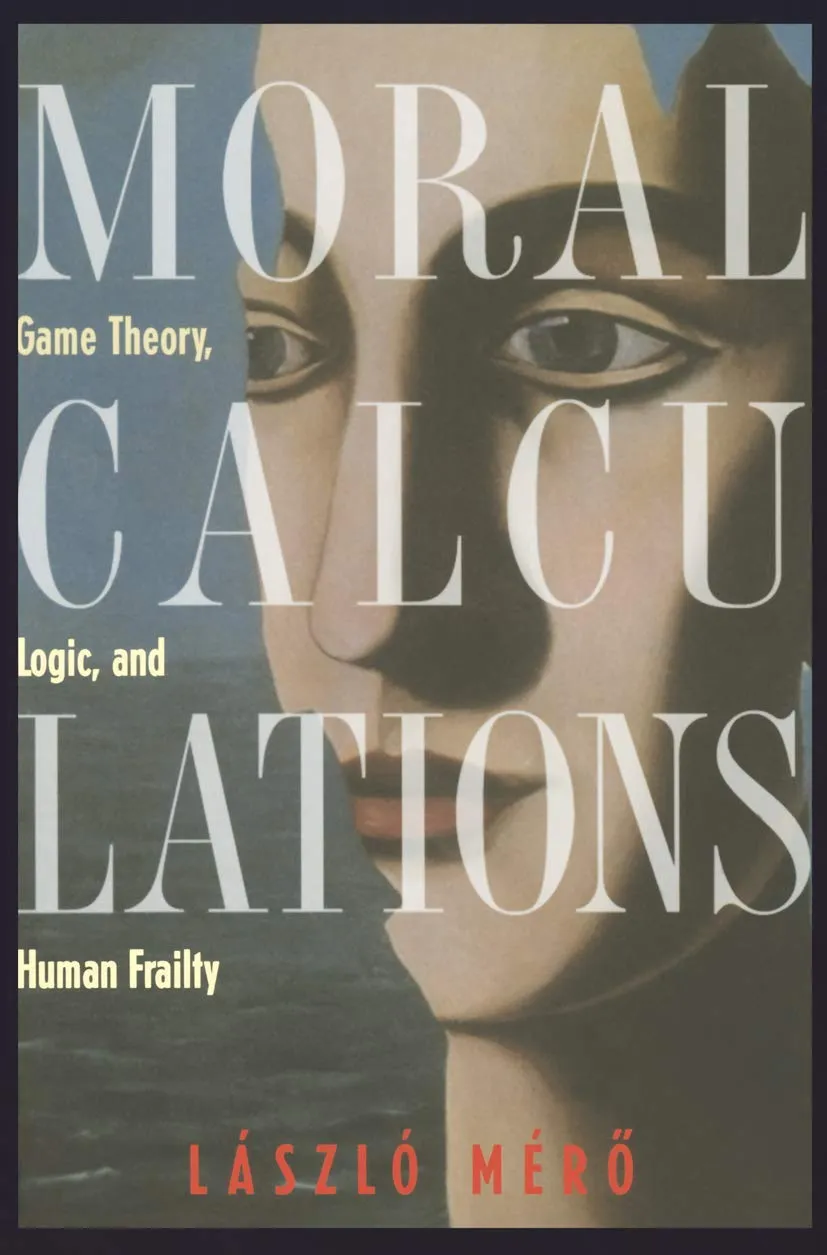Home
|
Products
|
9789356962026

Moral Calculations Game Theory | Logic | and Human Frailty
by Mero
Highlights

9780387984193
ISBN

Mero
Author

276
Pages

612 gm
Weight

English
Language

1998
Year

N/A
Edition

Hardcover
Binding
₹625
₹695
Here's something to do at your next dinner party after the guests have wined and dined, tell them you're auctioning off a dollar--a plain U.S. one-dollar bill. But set the rules as follows: while the winner gets the dollar, the second-highest bidder must also pay the amount of his last bid, even though he gets nothing. If you can get a single one-cent bid, chances are the auction will go to fifty cents. If someone bids fifty-one cents, bidding will almost certainly reach a dollar. If it goes to one dollar and one cent, the sky's the limit. No one wants to be the second-highest bidder. Afterwards the bidders say they spent so much because their opponent went crazy, which is a little like saying the fight started when he hit me back. Everyone has gotten into situations that resembled the dollar auction--where they devoted way too much effort to something not worth the commitment, because the cost of giving up was worse. Why do we act this way? How can we recognize these traps before we're in too deep? Is there such a thing as rational behavior, and if so, how do we use it to our advantage? Hungarian mathematician Laszlo Mero introduces us to the basics of John von Neumann's game theory and shows how it illuminates such aspects of human psychology as altruism, competition, and politics. Mero covers such concepts as zero-sum games; Prisoner's Dilemma; the game of Chicken (played with cars in Rebel Without A Cause), where logic proves that the rational strategy is to be irrational; how to be kind to your lover through game theory; and when the Golden Rule works and when it leads to disaster. Mero shows how game theory is applicable to fields ranging from physics to evolutionary biology, and explores the role of rational thinking in the context of real-life situations ranging from doorway etiquette to the nuclear arms race. He also explains how moral dilemmas arise; how to act rationally and ethically when they do; and how the intersection of rationality and irrationality inevitably becomes what we call wisdom. This fascinating, urbane book shows us how we can better understand ethical behavior.
Online store of medical books
Discover a comprehensive range of medical books at our online store. From anatomy and physiology to the latest clinical guidelines, we've got you covered.
Trusted by students, educators, and healthcare professionals worldwide. Browse top publishers and expert-authored titles in every medical specialty. Enjoy fast shipping, secure payments, and easy returns. Your one-stop destination for quality medical knowledge at your fingertips.
Whether you're preparing for exams or expanding your clinical expertise, our curated collection ensures you have the right resources at hand. Dive into detailed illustrations, case studies, and up-to-date research that enhance your understanding and practical skills.
We regularly update our inventory to include the latest editions and newly released titles, helping you stay current in the ever-evolving medical field. Our advanced search and filtering tools make finding the perfect book quick and hassle-free.
Join our community of lifelong learners and medical enthusiasts. Sign up for exclusive discounts, early access to new arrivals, and personalized book recommendations tailored to your professional interests.
